A herd of 20 Konik horses has just been released onto Ermakov Island in the Ukrainian part of the Danube Delta. Following the translocation of 23 animals to the island last year, this new group will further enhance wild nature through their grazing and aid the development of nature-based tourism.
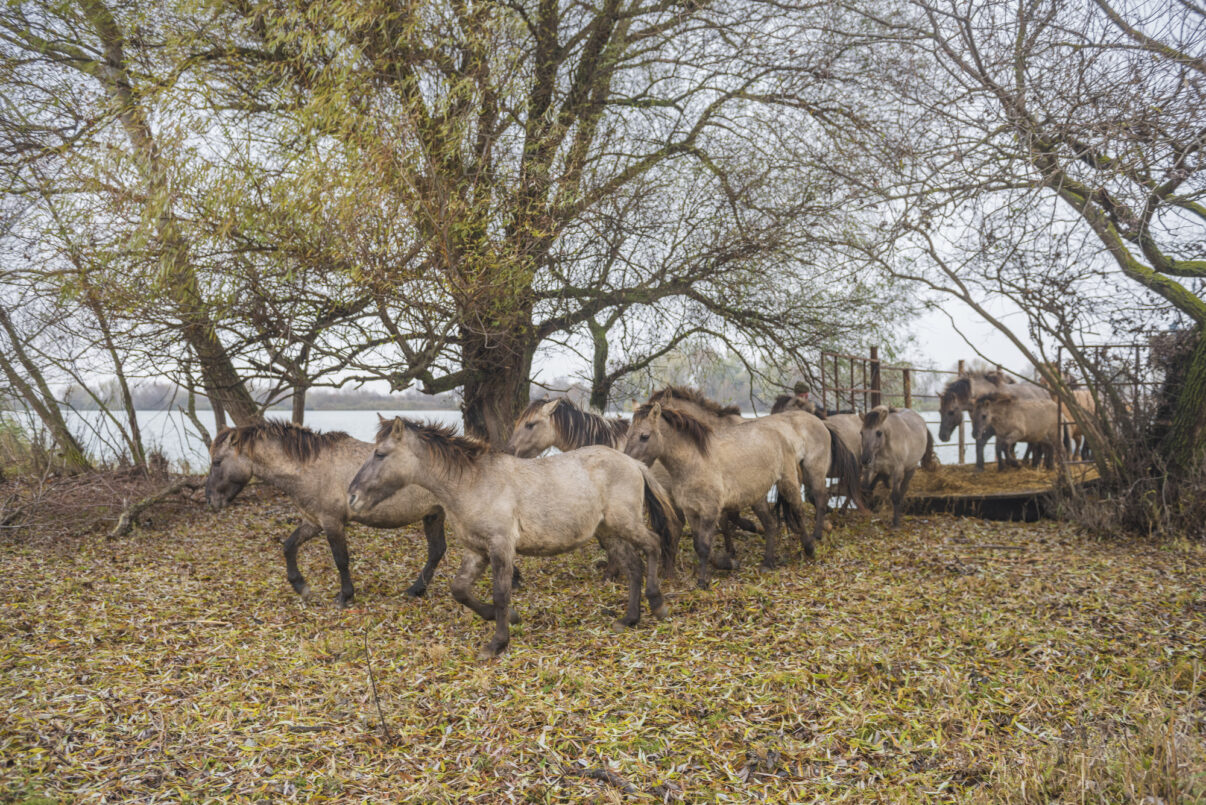
 Natural grazing boost
Natural grazing boost
A shipment of 20 Konik horses has just been released onto Ermakov Island in the Ukrainian part of the Danube Delta rewilding area. The animals, which were translocated from Latvia at the end of October, are now roaming free and will enhance wild nature through their browsing, grazing and fertilising. They will also help to attract more tourists to the area, thereby boosting the local economy.
The animals join a 23-strong herd of Koniks and a herd of 18 water buffalo (released in two shipments) here in 2019. Both of these herds have acclimatised well to their new environment, with three Konik foals and three buffalo calves born this year. Herds of four red deer and 12 fallow deer were also released on Ermakov Island in early December.
“Following the successful release of Konik horses last year, this follow-up translocation will increase much-needed natural grazing in the Danube Delta,” explains Rewilding Ukraine Executive Director Mykhailo Nesterenko. “The newly released horses will complement the water buffalo, Konik horses and deer already released and living wild in the delta, with all of these herbivores helping to create more diverse habitats and a richer biodiversity through their grazing.”
Grazing impact
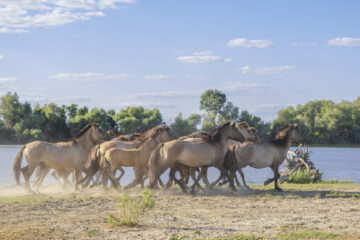
Unlike bovines (such as water buffalo), which are typical grazers, Konik horses also browse vegetation. The combined impact of wild bovines and equines (horses) on the delta landscape is, therefore, greater than the impact of just one type of herbivore.
The grazing impact of Konik horses released on Ermakov Island is also enhanced by the fact the animals venture further into the water than water buffalo. Analysis of satellite imagery has revealed that vegetation on the island has become slightly more varied compared to last year – while this could be related to the introduction of horses and buffalo, this needs to be verified with drones and further monitoring.
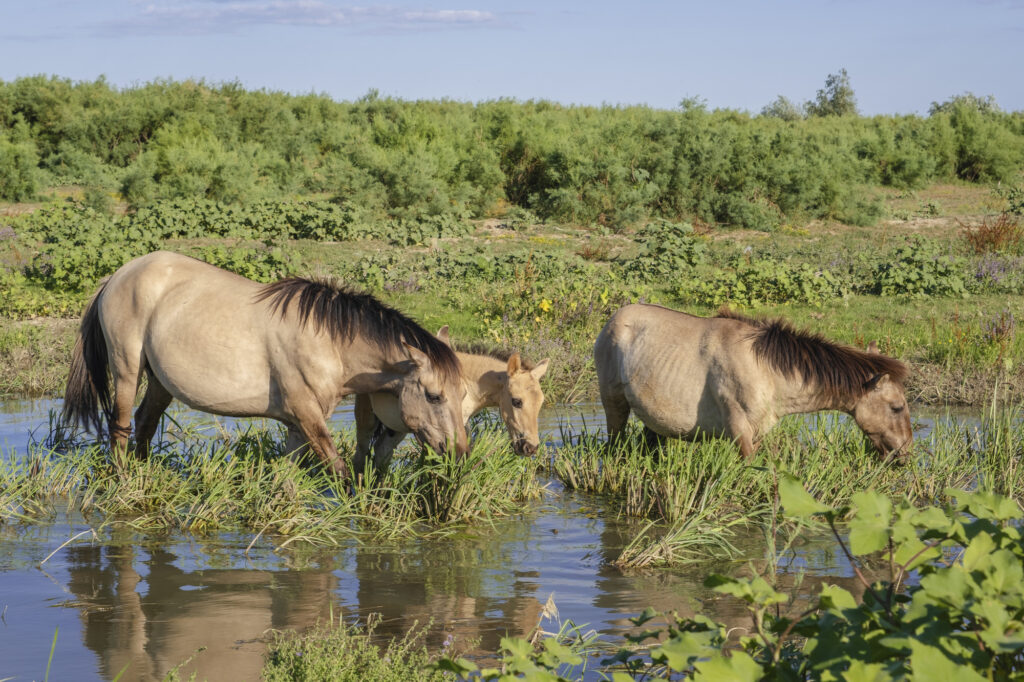
A well-adapted animal
The Konik horses involved in the translocation were selected according to established family groups, which typically include elderly animals, breeding animals and their offspring. Like the extinct wild Eurasian horse known as the tarpan, from which they are descended, Koniks are robust and well-suited to living in wild conditions (they are considered wild animals under Ukrainian law, rather than livestock). With an extremely resilient immune system, they can survive harsh winters and are capable of defending themselves against predators.
Towards a wilder Danube Delta
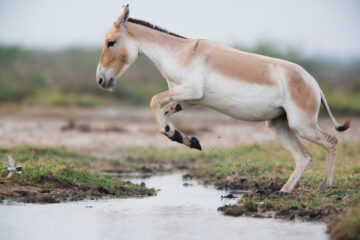
Funded by a 2.1 million euro grant from the Endangered Landscapes Programme – which is financed by Arcadia, a charitable fund founded by Peter Baldwin and Lisbet Rausing -, Rewilding Europe’s rewilding efforts in the transboundary Danube Delta rewilding area scaled up significantly at the end of 2018. Such efforts, which include the translocation of large grazers such as Konik horses, water buffalo, kulan (a type of wild ass), hutsul horses and fallow deer are focused on the recovery of natural landscapes, their natural processes (such as flooding and natural grazing) and associated flora and fauna across at least 40,000 hectares (400 square kilometres) of the delta in Romania, Moldova and Ukraine.
The Konik horses on Ermakov Island will now be allowed to breed naturally and reshape the landscape. The population will be continually monitored – if it grows too large some animals will be moved to other areas.
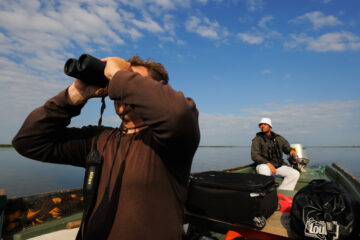
A growing tourist attraction
In addition to regulating vegetation and landscapes, the Konik horses, water buffalo and other herbivores of the Ukrainian Danube Delta are already drawing growing numbers of tourists, despite the impact of Covid-19.
Last year the Rewilding Ukraine team began helping communities in the rewilding area with tourism infrastructure development and marketing, with the goal of making it an attractive and well-known nature-based tourism destination.
Want to know more?
- Rewilding Europe and natural grazing
- Rewilding Europe in the Danube Delta
- Rewilding Ukraine Facebook page
- Rewilding Danube Delta Facebook page
- Endangered Landscapes Programme
